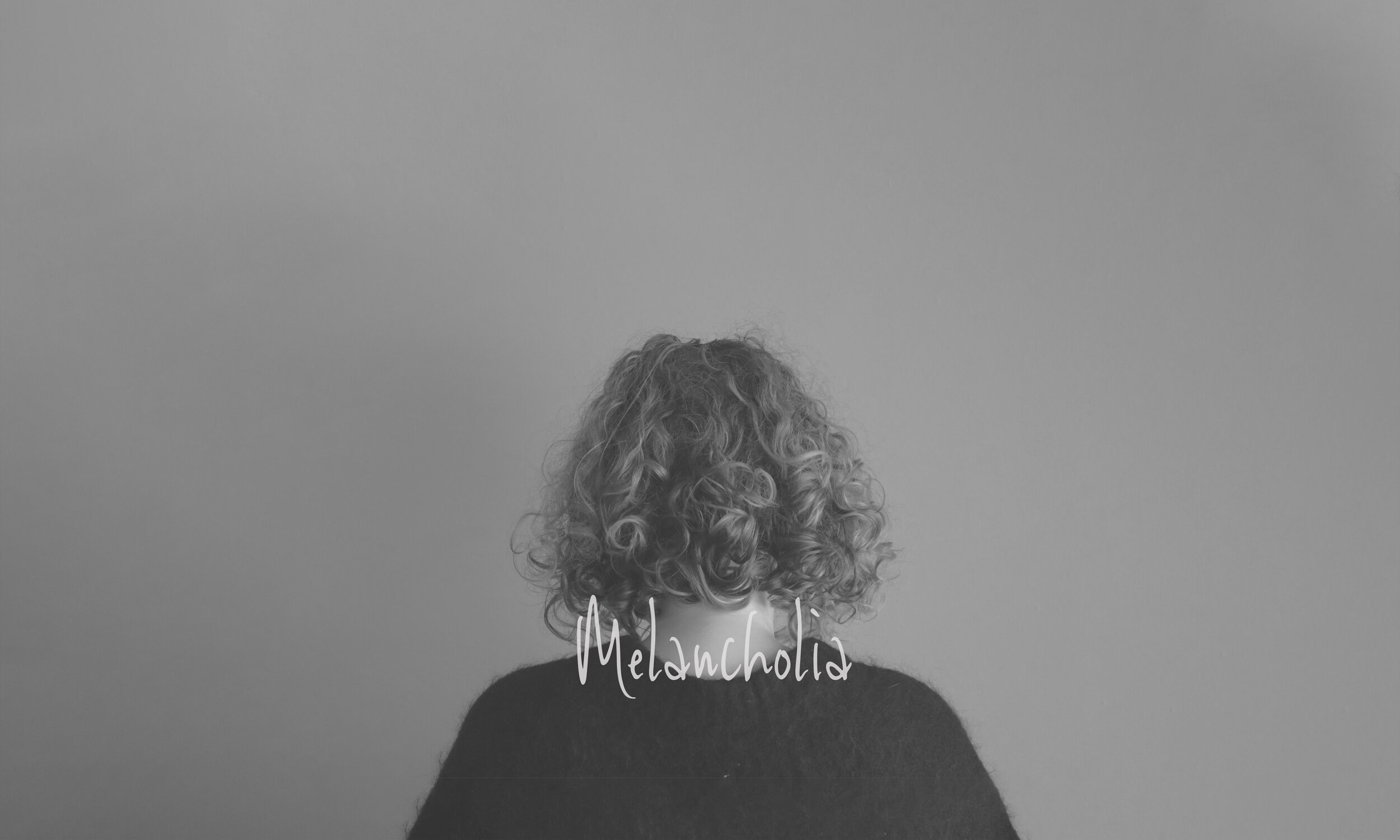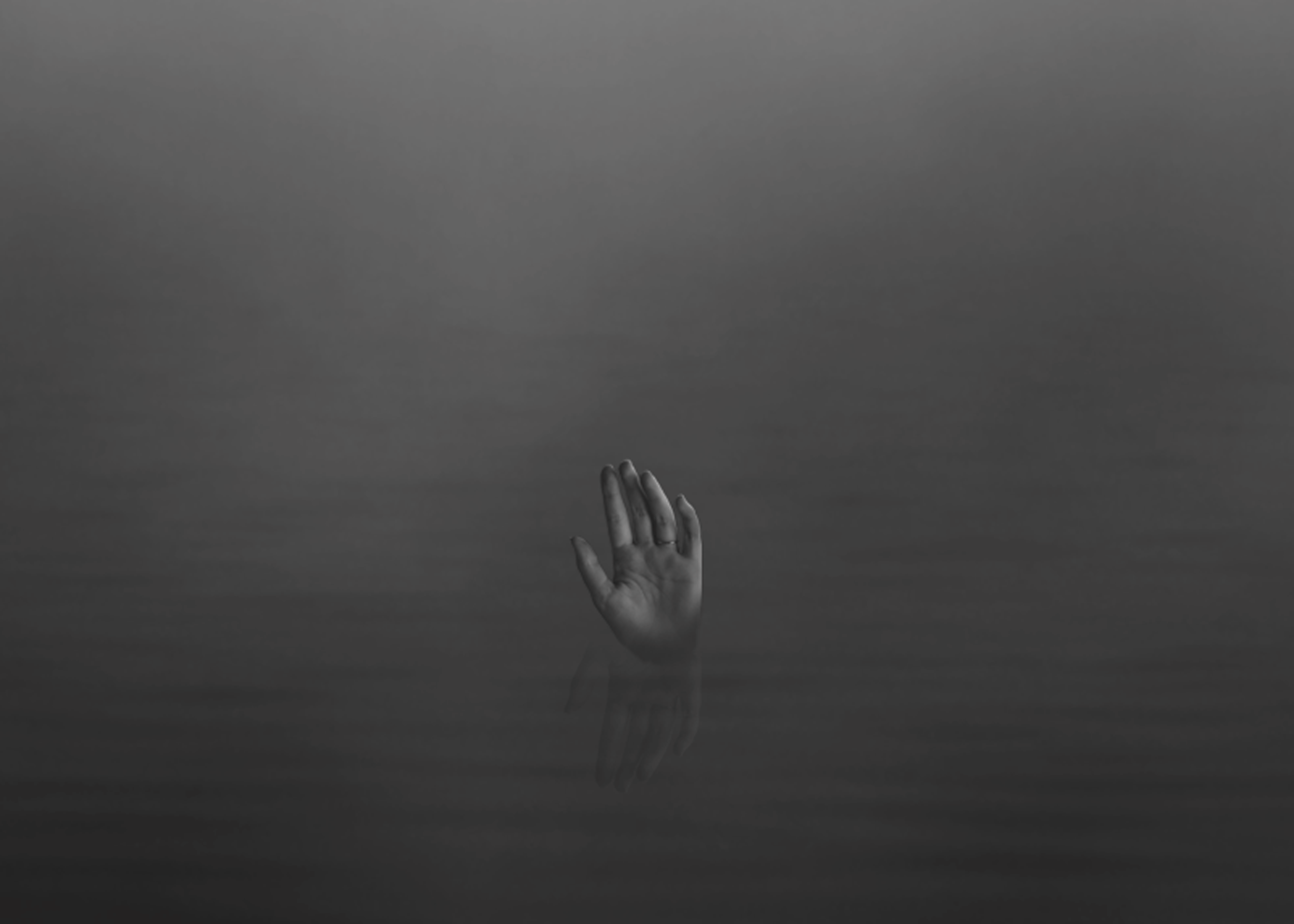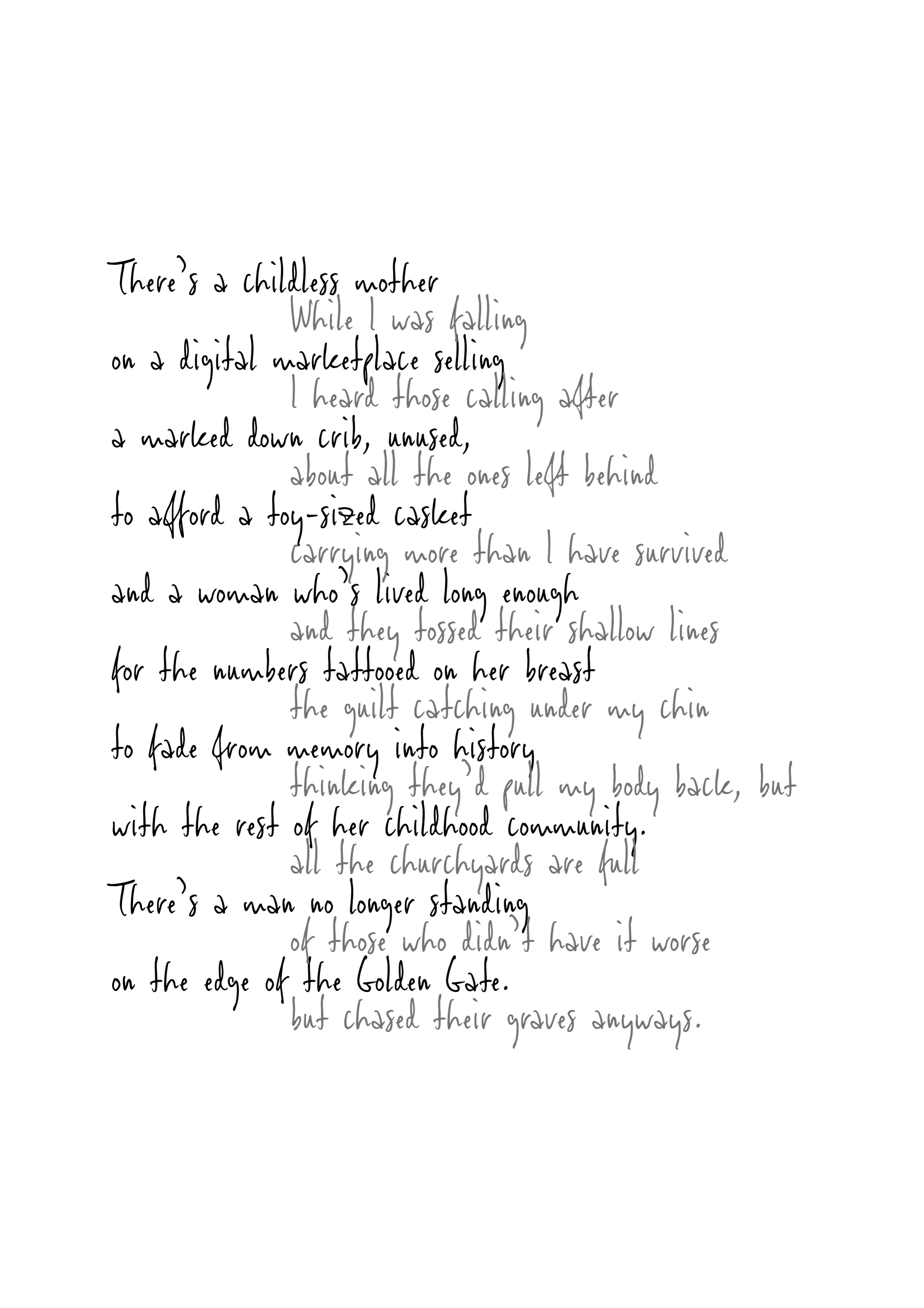
Mr. Henry Harrington couldn’t help but think about his wife and the dinner she’d no doubt made for them, both growing cold in their waiting, and that he should have looked up why the Golden Gate Bridge was, in fact, red before he got here – a thought that was almost enough to make him turn back.
Almost.
While Mr. Harrington willingly approached the end of his life, another Henry forcibly arrived at the beginning of his, so devastated by the shock of it all, that Little Henry had almost forgotten to cry.
Almost.
But as Little Henry took his first gasps of air, Mr. Harrington spent his final fleeting seconds surprised the fog didn’t catch him in his falling.
And the last thing Mr. Harrington did before he hit the water was take a deep, gasping breath in.

On a clear day, one could see the Golden Gate, the very same one Mr. Harrington faced 50 years prior, from Henry’s bedroom window.
And some days, when the fog settled thick enough, the bridge was the only clear thing Henry could make out.
…
He didn’t notice until it had set in. He never did, though it was always the same:
The dishes spending their third day in the sink, the empty cartons of orange juice and Chinese takeout littering the counter – some cardboard, some plastic, the swiping away of text messages before they could be read.
The thick fog crept its way through the long-drawn curtains catching without a cry in his throat.

Dried brushes, crusted palettes, curtains closed to natural light.
Even if he could reach his paints behind the pile of paper plates accumulated when the sink became too full of forgotten dishes, Henry didn’t think he could find the part of him that wanted to.
He’d stare blankly at an empty canvas greyed from disuse but could only see himself reflected, the devastation of obsolescence captured just below the dust coating.
The fractured reflection he tried to hide along with every mirror that broke under his sight.

He had bought frames to fill with painted faces of friends and family the last clear day. But the fog carried them away before he could fill them.
Instead, stock strangers stared back with the same emptiness Henry carried in his pocket – a phone full of contacts and no one to call for coffee.

Henry liked being alone.
He liked his chips double dipped, books read within a single sitting, and the TV remote always exactly where he’d left it. He liked to dance to songs too nostalgic to be forgotten and not having expectations he’d fail to live up to.
What he didn’t like was loneliness.
Loneliness was a sock shoved to the back of the drawer, kept only in case its mate turned up. The space between tan lines of a forgotten ring. A spare tire only needed when it’s a nuisance. Atlas left to hold up the world while those he carried forgot their weight.
A picture frame holding nothing but stock strangers more familiar than estranged family members too afraid of catching secondhand sadness to face the fog.

Loneliness was an inbox full of “missed you again’s” instead of “are you ok’s”

Stock strangers hung crooked from their posts
with empty eyes that haunt the hollowed man.

A half empty glass of water, expired
fly floating in the backwash, wet
rings marking apathy in his hand-
me-down hardwood dresser
degrading in passive time.

…the persistent clicks the persistent clicks of a ceiling fan eating up barely whispered prayers before they get much of anywhere dust dripping back down on him, the persistent clicks of barely whispered prayers, the persistent clicks eating up much of anywhere, dust dripping down, the persistent whispered prayers of anywhere, the persistent prayers dripping dust, dripping back down on him…
…
Seventh day dishes molded in the sink, cobwebs crept over the doormat, the cell phone sat in silence with no more messages coming in to swipe away, dust collected over Henry.
Loneliness was a hollowed man too heavy to breathe.
And he let his loneliness bury him, only dust left to fill his grave.

Gasping for air, he woke up, trapped, in a shallow moat under the south tower.
Mr. Harrington had survived.
The surgeons repaired his ruptured spleen and the liver that had drowned long before he hit the water. His wife rebuilt their home 245 miles away following the job transfer, as if his hollowness was so easily filled with some fluids and a change of scenery.
The newspapers never disclosed his real motive for jumping. Reporters had their assumptions but were too uncomfortable to ask.
His wife never looked for his note, left where she couldn’t miss. She thought there was no point now and best not to discuss, not to remind.
And Mr. Harrington would never let himself admit that he still found himself holding his breath over every bridge he drove in this new city, far from that Golden Gate so often shrouded in fog.
…
Upholstery pressing through a punctured corner, ant tenants in the shower drain, delivery boxes like nesting dolls cradling each other, lost on their way to the recycling.
The fog wrapped around him like a weighted blanket or the arms of a friend reaching beyond the pixels. At least it seemed to care enough to show up, to try, the effort the only comfort Henry’s mind could connect to.
Comfort was when loneliness became so familiar it felt like home.

Graves crumble, and coffins collapse. People hang in other hallways, and fog dissipates with the right shade of daylight.
When the fog faded, faces came back, and Henry filled his frames with painted portraits of laugh lines and welcomed community caught in the reflection of their eyes.

Loneliness was knowing they’d all fall from their frames
once the fog settled in again.
Some days, I still forget to breathe out.

If you are experiencing suicidal thoughts, please call the National Suicide Prevention Hotline at 800-273-8255 or visit suicidepreventionlifeline.org





















